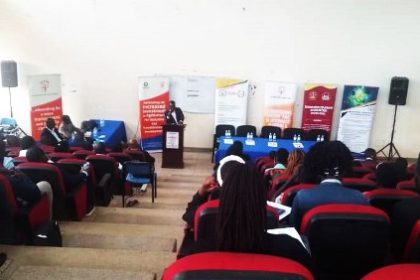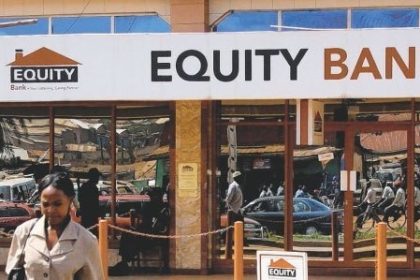Business sentiment plunges in April as lockdown takes hold
 Kitungulu said the April reading is not a surprise given the restricted movement during the past 45 days of the lockdown.
Kitungulu said the April reading is not a surprise given the restricted movement during the past 45 days of the lockdown.
The national lockdown aimed at limiting the coronavirus pandemic, has plunged the monthly Stanbic Bank Purchasing Managers Index (PMI) down to it’s lowest reading to date at 21.6 for April, down from 45.3 in March. A reading of 50.0 and above marks positive territory.
“Negative business sentiment is not necessarily a surprise given the restricted movement during the past 45 days of the lockdown. This has led to a decrease in aggregate demand and in turn a decrease in output. However, we should expect a return to normalcy once the pandemic subsides. In fact, we have seen a number of our clients adapt their business models to deliver goods and services to the clients directly – through adopting digital solutions as well as increase the shelf life of some perishable goods whose demand has been impacted by border closures,” Kenneth Kitungulu, the Stanbic Bank Uganda, Head of Global Markets said.
The monthly survey sponsored by Stanbic Bank Uganda and produced by IHS Markit, covers agriculture, industry, construction, wholesale & retail and services sectors. All five broad sectors covered by the latest survey recorded decreases in business activity.
Uganda is now in the early stages of a third lockdown period. The initial one was announced in late March for two weeks followed by a second one for three weeks. On Monday, President Yoweri Museveni extended the lockdown for another two weeks, but eased conditions for wholesalers and some sectors of the automotive industry.
Deteriorating business conditions have now been in evidence for two consecutive months. These have been highlighted by company closures, a lack of new orders and restrictions on travel all that have had an adverse impact on business.
Kitungulu said, “Import substitution will go a long way in stimulating local companies to produce goods that were imported. Government should also support the Buy Uganda Build Uganda policy as a way of stimulating economic activity in the economy. Furthermore, the annual inflation report released by the Uganda Bureau of Statistics for end of April indicates that whereas the cost of cereals and processed foods such as maize floor and Rice have gone up, there has been a marked drop in prices of perishable food such as fruits, vegetables and bananas partly due to difficulties in exporting. This further reinforcing the need for local value addition not only to increase shelf life but also to increase our export earnings.”
The PMI is a composite index, calculated as a weighted average of five individual sub-components: New Orders (30%), Output (25%), Employment (20%), Suppliers’ Delivery Times (15%) and Stocks of Purchases (10%).
During April, survey respondents recorded falling consumer demand and a subsequent drop in new orders. With output requirements down, companies looked to scale back employment and purchasing activity, in each case for the second month running. Restrictions on travel meant that many companies that did order for inputs during April also faced lengthening delivery times.
Overall input costs decreased for the first time in the survey’s history, with both purchase prices and staff costs significantly down. Companies have in turn reduced selling prices for the first time on record amid a lack of demand.
According to the report, ‘Companies were pessimistic regarding the outlook for business activity for the first time in April. A number of respondents expressed concerns around the lasting impacts of COVID-19 on the economy. That said, some panelists expect a return to normality once the pandemic is brought under control’.
Despite the continued fall in international oil prices, the agreement by Tullow Oil to sale its interest in the Albertine region to Total ENP marks a significant breakthrough towards the Final Investment Decision (FID) although that is likely to be delayed beyond the second half of 2020. This will provide much needed economic stimulus.

 Shell Club rewards first winners with brand new motorbikes in Mbale
Shell Club rewards first winners with brand new motorbikes in Mbale
 CSBAG roots for increased funding for renewable energy
CSBAG roots for increased funding for renewable energy
 Equity walks tried and tested path to deliver solid half-year
Equity walks tried and tested path to deliver solid half-year
 Nile Breweries primes retailers for brave new world
Nile Breweries primes retailers for brave new world
 Uganda calls for collaboration with airlines in fight against illicit trade in wildlife
Uganda calls for collaboration with airlines in fight against illicit trade in wildlife
 Airline industry top guns dust-off passports for Uganda hosted 55th AFRAA annual meet
Airline industry top guns dust-off passports for Uganda hosted 55th AFRAA annual meet
